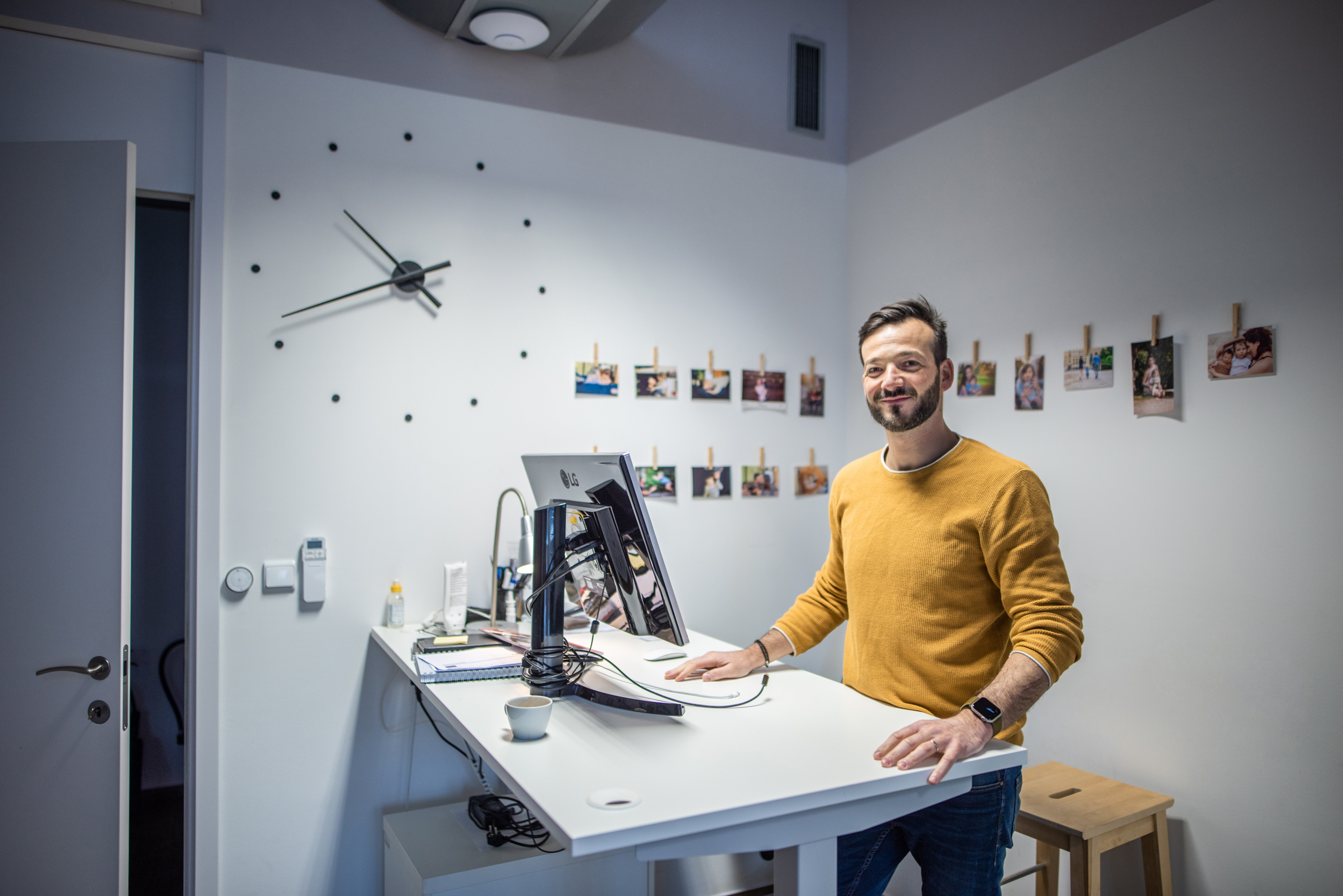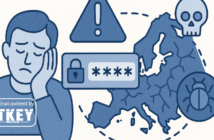This post was originally published on Rockaway Capital’s website. Rockaway Capital’s team kindly agreed to republish what we think is of great value to our readers.
The Rockaway Insider is a regular newsletter in which the experienced personalities who stand behind the Rockaway Capital investment group and the successful companies in its portfolio offer practical advice, tested managerial methods, and inspirational ideas. We are unlocking an interview for you from the first edition. You can look forward to the next one on Wednesday, December 9 in the morning – this time with Igor Třeslín, CEO of Storyous.
For the last seven years, Tomáš Braverman has headed the most successful Czech price comparison site and shopping adviser, Heureka.cz, and managing the entire Heureka Group, which is used by 55,000 e-shops in nine Central and Eastern European countries, and its website is visited by 23 million users per month. Tomáš says that he gets his best ideas when he’s riding his bike to the office or doing yoga – both of which he tries to do every day.
WHAT KEY THING HAS 2020 TAUGHT YOU?
The current situation has reminded us all of how powerless we all are in the face of nature. We can think that we’re prepared for everything, but then bang – and in the end we’re surprised anyway. For me, the lesson in business is that it’s necessary to be able to react quickly to changes and to be an opportunist. Even if you have a perfectly prepared strategy, you need to go over it again and start thinking outside the box. You need to think opportunistically about how the situation has changed and how you can take advantage of it for your business.
That’s exactly what we did right at the start of the crisis. Like everyone, we put together crisis scenarios. This is because we were afraid that it would completely disrupt supply chain management, that there wouldn’t be anything to buy even if the demand was there. But at the same time we immediately began contemplating what this opportunity could offer us and how to take advantage of it.
And that brought us to the realization that Heureka is a fantastic business and service precisely for these times. Both now, when due to the pandemic purchasing is moving on-line globally, and in the event of the subsequent financial crisis, when people will find the services of a price comparison site that will help them save money useful. So we were lucky in that we didn’t have to change our strategy and there was no need to think of anything new, but it’s important to experience this realization and reassure oneself.
WHAT IS THE NUMBER-ONE RULE THAT YOU FOLLOW AT ALL COSTS IN YOUR BUSINESS?
For me, two things are key. The first is decision-making. It’s important to base one’s decisions on current mood and attitude, but also on data and expert opinions. And then to decide. The problem many managers have is that they hesitate, they say that perhaps multiple roads lead to the objective, and are then incapable of deciding, but this is a mistake. I, on the other hand, have always had a problem with impatience, so my tendency is on the contrary to rush things, which is why, when faced with an important decision, I always tell myself: Stop and think it through one more time.
The second thing is communication. One can’t do without good communication in business these days, both with employees and with clients. Whom you give information to and in what form is important, but in general I say that there’s no such thing as “overcommunication”. There’s never enough communication. So my advice is clear – make good decisions and communicate them properly.
___
“WHEN YOU HAVE THE FEELING THAT YOU’RE SURROUNDED BY PEOPLE THAT SHOULDN’T BE THERE, YOU NEED TO CHANGE IT.”
___
ONE LEARNS FROM ONE’S MISTAKES. WHAT MISTAKE TAUGHT YOU THE MOST, AND WHAT, SPECIFICALLY?
It’s a typical mistake managers often make – I hesitated needlessly when firing co-workers. When you have the feeling that you’re surrounded by people that shouldn’t be there, you need to change it. It’s natural to hesitate, to tell yourself that you won’t find anyone better, but that’s stupid. I absolutely agree with Martin Kasa, who says: “I never regretted firing someone too quickly.”
The last time this happened to me was a while ago, when I replaced the entire top management team at Heureka. Back then it took me a terribly long time before I made up my mind to do it, but now I see how far we’ve come thanks to this unpleasant step, because now our team is better. I learned my lesson, but I admit that it took me some time.
WHAT IS YOUR MOST IMPORTANT PIECE OF ADVICE FOR NEW ENTREPRENEURS AND START-UPPERS?
Check your hypotheses thoroughly, ask people around you what they really think of your product, make a prototype, and try it out. In my experience, founders of start-ups often fall in love with their idea to such a degree that they look neither right nor left, and then don’t even want to check whether they’re on the right road.
So there’s a need to find a balance between patience and persistence. That means that you have to be patient, because it’s an illusion to think that success will arrive immediately – you’ve got to give it time. But when something isn’t working, there’s simultaneously a need to be persistent and to be able to change your decision.
And one more thing – don’t be afraid of fuck-ups. Every start-up experiences some, and you need to be prepared for them. We Czechs avoid them, we see them as a personal failure that everyone’s afraid of, but that’s not the case. For example, in America they take it differently; a fuck-up is a routine thing, where you say: Fine, it didn’t work, so I’ll get rid of it, learn my lesson, and try it differently.
WHAT DO YOU CONSIDER THE GREATEST BENEFIT OF YOUR BUSINESS FOR SOCIETY?
We live in a consumerist society and Heureka contributes to consumerism to a certain extent, which today has pejorative connotations. On the other hand, today’s economy is based on consumption, and to say something different would be just lying to oneself. This is aptly illustrated by the current crisis – when consumption stops or slows down, people grow poorer…
But I see Heureka’s greatest contribution in the fact that we give relatively small and mid-sized business a chance to sell on-line, thus helping them. For me, that’s key. I don’t want to live to see the day when on-line sales around the world are dominated by only the two largest players, Amazon and AliExpress, and European e-commerce is non-existent. That’s where I see Heureka’s mission.

HOW’S YOUR WORK-LIFE BALANCE?
Bad, I admit. And it’s better if you don’t ask my wife. Here I’ve got no advice to give, I myself am not very good at it and never have been. Quite often I work on weekends and my mind is on my work a lot. I don’t think that’s good, as some claim. When the whole family is sitting around the dinner table and one of the kids starts playing games on their smartphone, that would annoy you too. This is the same. When you’re playing with the kids, you can’t be thinking about work, you’ve got to concentrate. I’m trying to do better, I’d like to learn to put down my phone, but I’m not very good at it yet. I’m as addicted to my phone as everyone is, I guess. Yes, it’s an addiction, even workaholism is an addiction, one that’s not easy to overcome. And I think that my kids’ generation will have an even harder time of it.
WHAT TECHNOLOGY THAT HUMANITY HASN’T YET INVENTED IS MISSING IN YOUR LIFE?
If we’re talking about a technology that would make our lives happier, then we’re not missing any, because we were happy even without technologies. But I’m looking forward to the day we’re better able to use various nanorobots and organisms that we’ll put into our body and they’ll then repair what’s wrong. What I’m on the contrary not looking forward to and what I’m definitely not missing is artificial intelligence. I don’t mean the AI we have today, but real artificial intelligence that is able to develop itself, be self-aware, and that is still a long way down the road. It doesn’t give me a good feeling and in my view it’s inevitable that one day artificial intelligence will replace our natural intelligence. Even if it takes a thousand or a million years.





